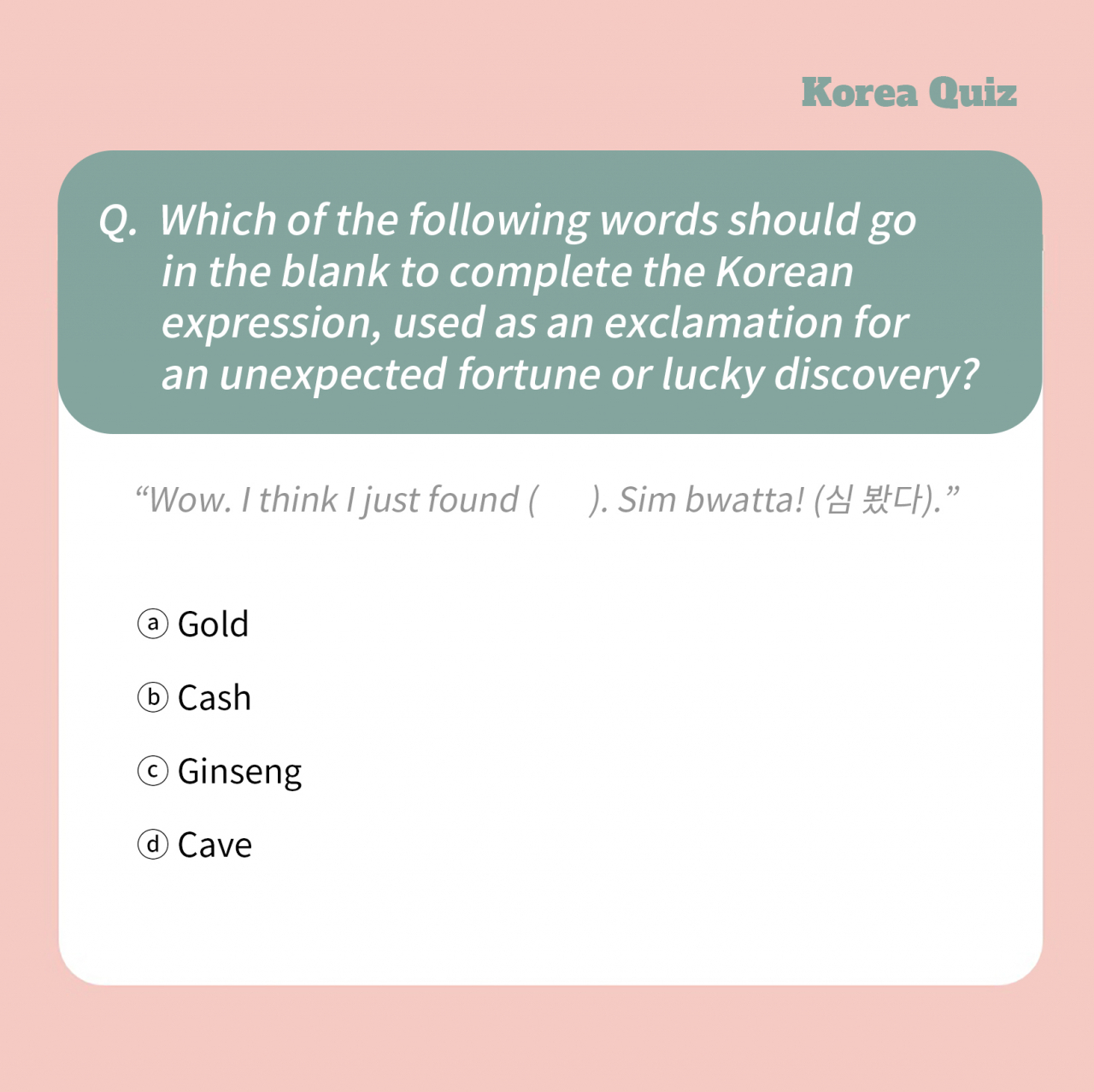

Find the answer at the bottom.
A slow-growing forest perennial, wild ginseng has long held a revered place in East Asian culture for its supposed ability to stave off aging and boost stamina.
In South Korea, where ginseng use remains popular, certain old, naturally grown varieties can come with jaw-dropping price tags reaching tens of thousands of dollars.
Although the herb is typically referred to as sam (삼) today based on the hanja character meaning "ginseng," historical records from the Joseon Dynasty show that its indigenous Korean name is, in fact, sim (심). The word thus forms the root of simmani (심마니), the name for a professional ginseng hunter who scours the mountainside looking for this prized plant.
Tradition has it that when a simmani comes across a prized wild ginseng, they shout "Sim bwatta!" (심 봤다), which literally means "I found ginseng!" three times to alert the fellow foragers. The reason for this practice is up for debate: Some say it's a way to express gratitude to the mountain gods for the lucky find, while others say it's a way of staking claim to the valuable root.
While simmanis are becoming increasingly rare in modern times, their custom lives on through the Korean idiom, which means "to strike a motherlode" or "to hit the jackpot."
Indeed, finding a top-notch wild ginseng in the woods can be quite literally hitting the jackpot -- the most valuable wild ginseng ever found, unearthed in Suncheon in January 2023, was reportedly appraised at an eye-popping 680 million won (over $500,000).
Answer: (c)







![[Today’s K-pop] Blackpink’s Jennie, Lisa invited to Coachella as solo acts](http://res.heraldm.com/phpwas/restmb_idxmake.php?idx=644&simg=/content/image/2024/11/21/20241121050099_0.jpg)